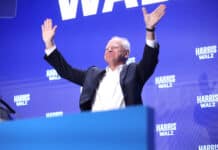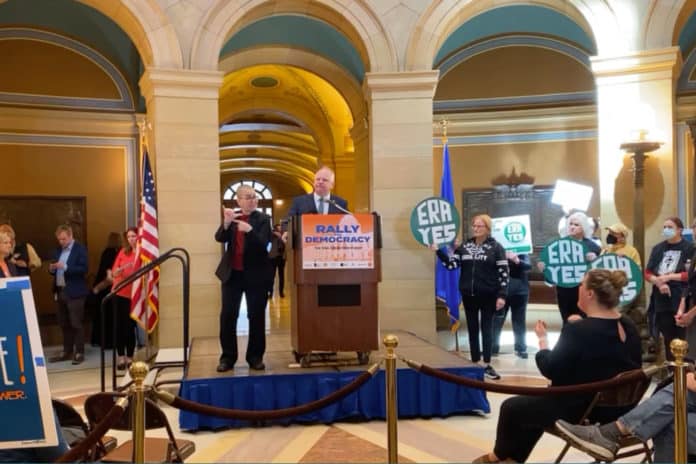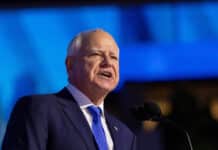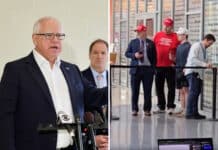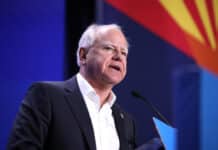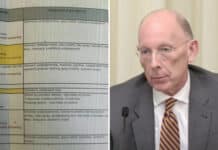Gov. Tim Walz made an appearance at a rally last week in support of ranked choice voting (RCV) and other reforms purported to “safeguard democracy.”
The Minnesota chapter of FairVote, a nationwide nonprofit dedicated to advocating for RCV, held a one-hour “Rally for Democracy” inside the Minnesota Capitol on Wednesday afternoon.
Speakers included Gov. Walz, U.S. Reps. Dean Phillips and Ilhan Omar, state Reps. Ginny Klevorn, Emma Greenman, Athena Hollins, Esther Agbaje, state Sen. Kent Eken, and Senate DFL Leader Melisa López Franzen.
Each speaker signed a petition calling for the creation of a “more representative and responsive democracy for all,” which includes reforms like RCV, so-called “fair redistricting” and “protecting and expanding voting rights,” and changes to campaign finance law.
In his remarks, Gov. Walz implicitly referred to opponents of such reforms as being “on the wrong side of history,” especially in light of Donald Trump’s objection to the results of the 2020 presidential election, the U.S. Capitol siege on Jan. 6, 2021, and the possible overturn of Roe v. Wade by the Supreme Court.
“I had the privilege as a member of Congress to be a part of writing legislation at times to strengthen our democracy,” Walz said. “And I also had the privilege as a member of Congress of walking across the Edmund Pettus Bridge in Selma, Alabama, with [the late civil rights activist and congressman] John Lewis, as he told the story of what it took, and the courage, to walk across that bridge and stare down those horses and those who were there to say, ‘You don’t deserve to vote.'”
The Minnesota governor also extolled those present at the rally as heirs to those civil rights activists of decades past.
“It is going to be our grandchildren and great-grandchildren that are going to ask, ‘What did you do when totalitarianism came and knocked on our doorstep here?'” he said. “And the answer is going to be very clear: ‘Every damn thing I could.'”
FairVote Minnesota executive director Jeanne Massey tweeted photos of Walz at the rally with the following caption: “Minnesota is fortunate for a Governor who has faith in our voters & who is a voice for safeguarding & strengthening our democracy. Thank you, Gov. Tim Walz, for standing with #democracy today!”
In commentary for Alpha News last June, Kathy Kranz and Kim Crockett argue that ranked choice voting actually exacerbates the divisiveness and partisanship that RCV proponents claim the system eases.
“[RCV] teaches candidates to form alliances (which could be viewed not as healthy coalition building but instead as a form of collusion) with other candidates. These alliances can mask candidate qualifications, and potentially alter the policy positions of the individual candidate, making the choice of who to vote for less clear and more complicated,” Kranz and Crockett write.
“Under RCV, voters are often befuddled on how to vote their choice with confidence. This is especially true of unsophisticated or low-information voters who do not wish to master the ‘strategy’ required by RCV,” they add.
RCV has been adopted by five cities in Minnesota: Minneapolis, St. Paul, Minnetonka, St. Louis Park, and Bloomington. Other cities around the United States have also implemented the system for certain elections.
RCV has even been opposed by some Democrats in recent memory. In 2016, former California governor Jerry Brown refused to sign a bill passing RCV because the system was “overly complicated and confusing.” Then in 2019, current California governor Gavin Newsom said RCV doesn’t necessarily achieve more “democratic” results.





